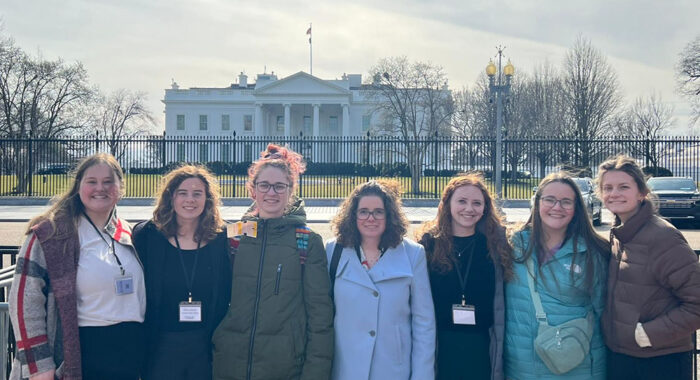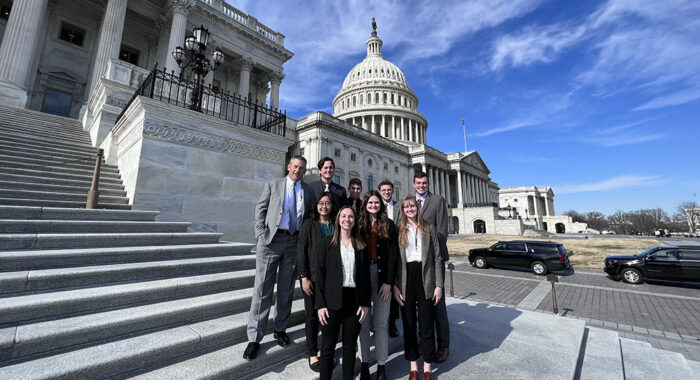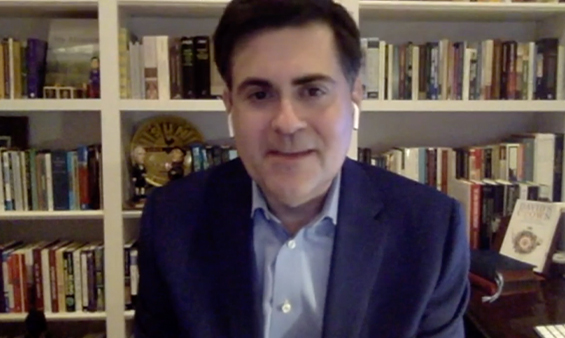Nineteenth century evangelicals worked to abolish slavery and promote the rights and welfare of women and children. In the first part of the 20th century many evangelicals withdrew from public life and focused instead on developing their own networks and institutions. The founding of the National Association of Evangelicals in 1942 provided a new framework for evangelical cooperation, which in time grew to include a principled evangelical voice in public affairs.
In the middle of the 20th century, the focus of evangelical civic engagement ranged from public morality at home to peace, freedom and security in the international arena. Toward the end of the 20th century, evangelicals became known for a strong commitment to religious freedom, the protection of the unborn, and traditional family values. The absence of a strong evangelical voice in the movement for civil rights and racial justice was also notable.
The Original
As the 21st century dawned, the NAE launched an initiative to deepen the biblical foundations for evangelical civic engagement. Through a consultative process, evangelical leaders and scholars reflected on our history of prophetic advocacy and lamented missed opportunities. The result was a short work entitled, “For the Health of the Nation: An Evangelical Call to Civic Engagement.”
“For the Health of the Nation” outlined the basis and methods for evangelical advocacy, and detailed seven areas of particular concern: religious freedom, children and families, sanctity of life, poverty, human rights, peace, and care of God’s creation. It was adopted by the NAE board in 2004 and, along with our board resolutions, became the platform for the NAE’s government relations work.
We have shared it with members of Congress and their staff. Readers from across the political spectrum have praised both its thoughtful content and its irenic tone. It has also been widely studied and used by other evangelical groups, and is a resource for political science courses on many Christian college campuses. The document also forms the core curriculum for the Christian Student Leadership Conference, the NAE’s annual college student gathering.
The Update
Recently the NAE decided to revisit and update “For the Health of the Nation.” While the underlying principles have not changed, the American political context has shifted significantly. Civic discourse has coarsened, abetted by partisan online news silos and social media echo chambers. Indeed, some leaders who sought to cooperate across party lines have been voted out of office.
There have also been deepening divisions among Americans on key moral principles. Evangelical convictions on family and human sexuality are now a minority position in many parts of the country. Religious freedom — once supported across the political spectrum — is now caricatured by many as the special pleading of groups who don’t want to treat others fairly.
New attention has been called to long-time social ills, including our broken immigration system, sexual harassment and abuse, human trafficking, racial injustice and white supremacy. Concern about these issues is implicit in the original document and is further elaborated in the updated edition, notably through the addition of a new section on racial justice and reconciliation.
Today’s Context
Thoughtful evangelical civic engagement is urgently needed. Sadly, the very term “evangelical” has been co-opted and racialized by political scientists, reporters and pundits as shorthand for white conservative Protestant Christians. This has led some who don’t fit the media stereotype to avoid the evangelical label as misleading.
In fact, NAE research shows that African American and Hispanic Americans are more likely than white Americans to strongly endorse core evangelical beliefs. A close reading of “For the Health of the Nation” reveals a biblically grounded, principled portfolio of concerns that do not fit neatly into the platform of any political party.
When contemporary political rhetoric descends into a fact-free slugfest, we can show that there is a better, more honorable path. “For the Health of the Nation” equips evangelicals for well-reasoned political engagement grounded in both truth and love, and to do so with humility and gentleness (1 Peter 3:15).
We commend “For the Health of the Nation” to all our elected and appointed leaders and pray that it will bless them as they carry out their responsibilities. We also offer it to churches and schools as a resource for helping their members and students think biblically and theologically about public policy issues, which is needed now more than ever.
This article originally appeared in Evangelicals magazine.
Galen Carey, NAE vice president of government relations, is responsible for representing the NAE before Congress, the White House and the courts. He works to advance the approach and principles of the NAE document, “For the Health of the Nation.” He is also co-author with Leith Anderson of “Faith in the Voting Booth.” Before joining the NAE staff, Carey was a longtime employee of World Relief, the relief and development arm of the NAE, serving in Croatia, Mozambique, Kenya, Indonesia and Burundi. He received an M.Div. from Trinity Evangelical Divinity School, and a Doctor of Ministry from McCormick Theological Seminary.




 View All Articles
View All Articles 




























